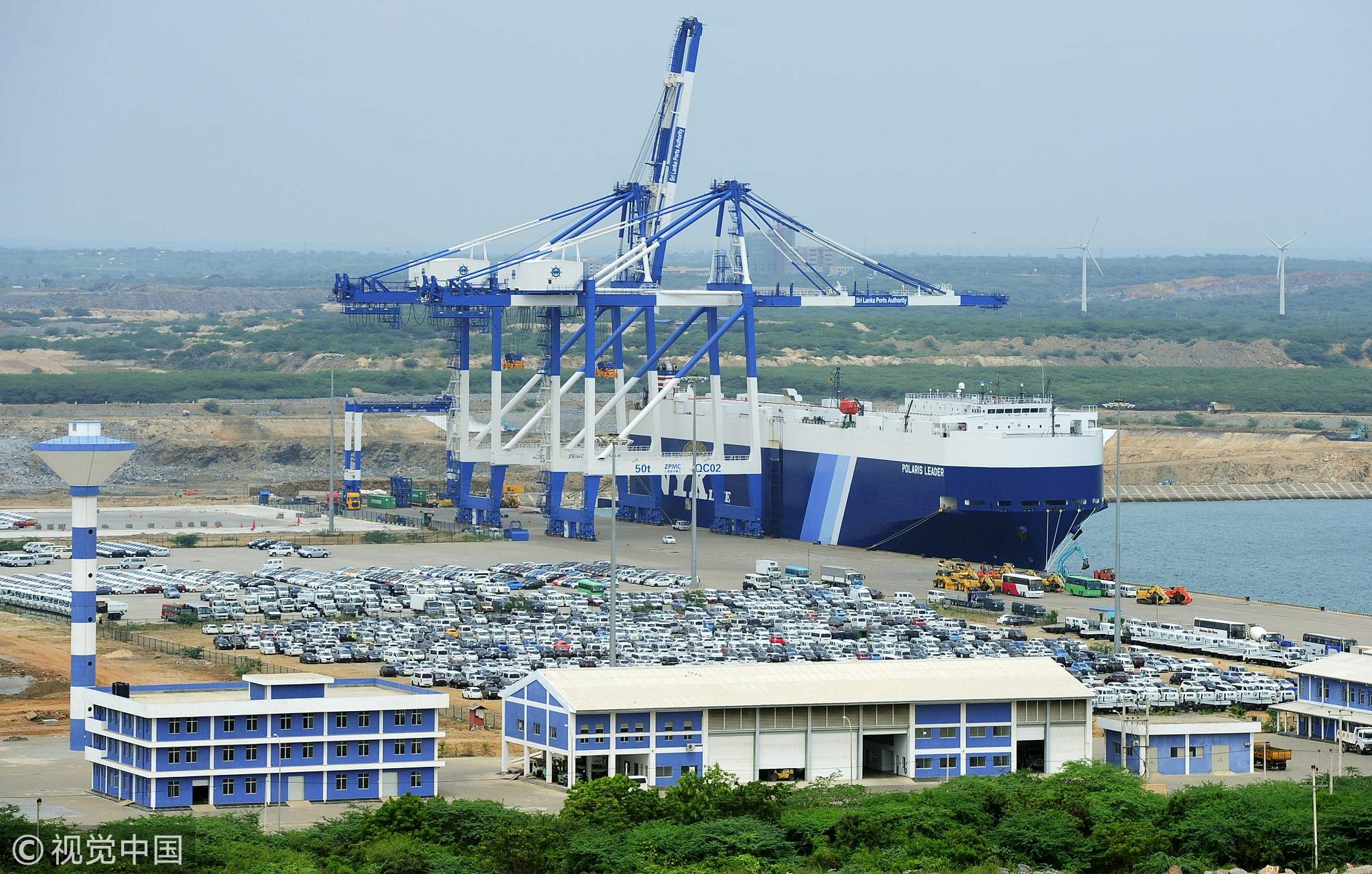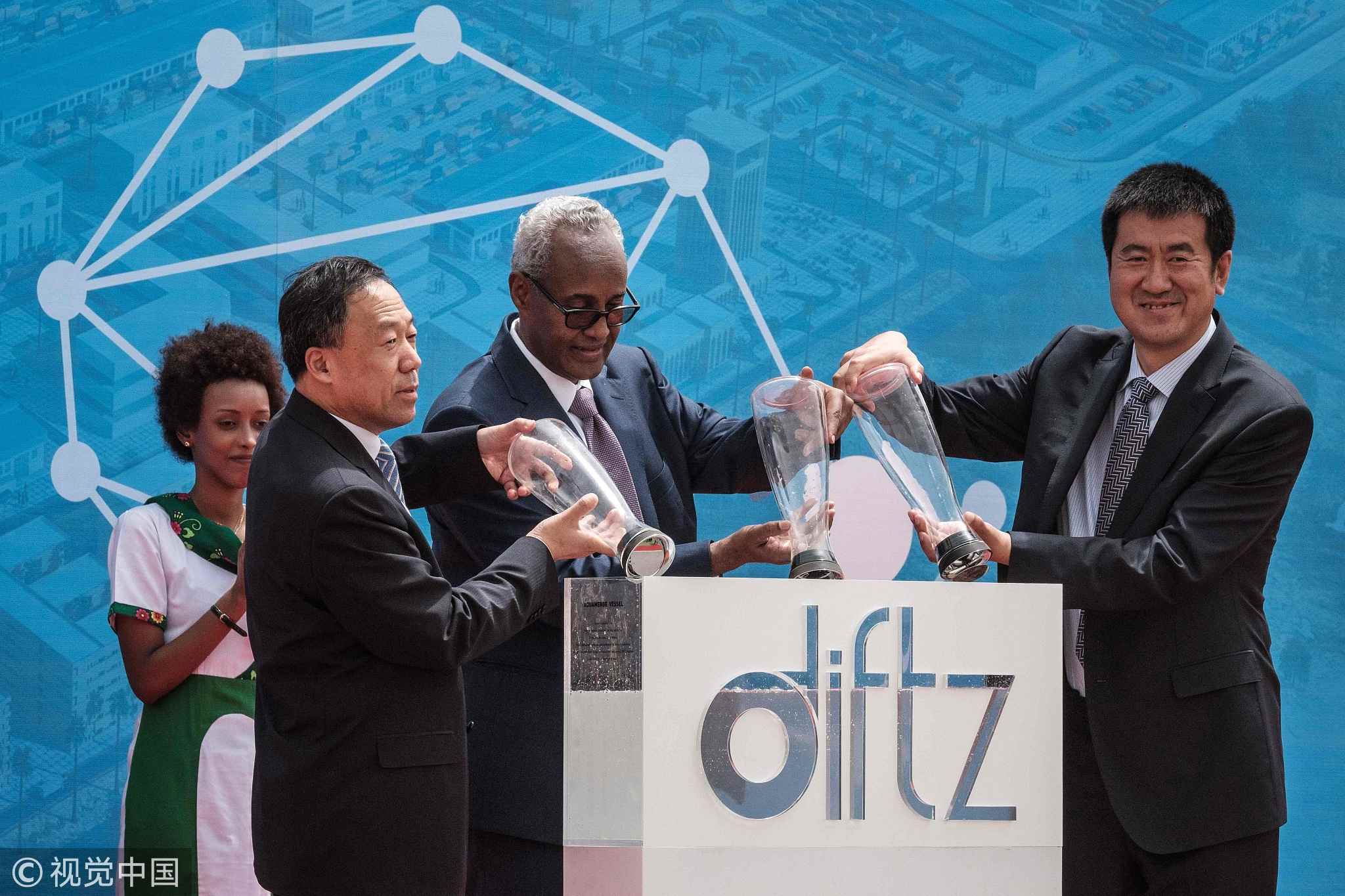
Opinions
17:34, 05-Sep-2018
Opinion: Discrediting the Belt and Road Initiative as 'debt trap' is untenable
Updated
17:29, 08-Sep-2018
Wang Wen Yang Tingting

Editor's note: Wang Wen is the executive dean at the Chongyang Institute for Financial Studies at Renmin University of China. Yang Tingting is an associate research fellow at the institute. The article reflects the authors' opinions, and not necessarily the views of CGTN.
This year marks the fifth anniversary of the Belt and Road Initiative (BRI). While its spirit of peace, cooperation and mutual benefit as well as its principles of extensive consultation, joint contribution and shared benefits have been increasingly recognized, some foreign scholars constantly coined new terms to discredit the initiative.
For instance, according to a Wall Street Journal article on August 6, sixteen US senators sent a letter to US Treasury Secretary Steven Mnuchin and Secretary of State Mike Pompeo to express concern over China's financing of international infrastructure projects that have left many countries indebted to China and potentially in need of bailouts.
Criticisms of the BRI such as Western media's "debt trap" and one Indian scholar's "China's creditor imperialism" are seriously flawed and untenable.
First, the high cost of borrowing undertaken by developing countries was due to the low ratings given by Western rating agencies.
Second, it makes no sense to apply the static criteria of 3 percent for the deficit/GDP ratio and 60 percent for the debt/GDP ratio for EU member states under the Maastricht Treaty to the BRI countries. The EU thresholds were not designed for emerging economies and fast-growing developing countries.
Finally, China never intends to pursue any special interest from its so-called "creditor" status labeled by some Western media.
Take Sri Lanka for example. With its economic growth stabilizing at around 7 percent in recent years, Sri Lanka will gain more momentum with Chinese loans for the Hambantota project. Chinese companies won the Hambantota project with their edge in experience, technology and capital, and the land lease period of 99 years is in conformity to Sri Lanka's general rule for global enterprises.

A general view of the port facility at Hambantota. /VCG Photo
A general view of the port facility at Hambantota. /VCG Photo
Sri Lanka's ability to repay the debt and maintain sustainable development are not in question. It should be said that the Hambantota project well illustrates the complementary strengths and common development between countries under the BRI.
China's endeavor of "going global" with the BRI is by no means an attempt to realize any "imperialist ambition" by controlling the sovereignty of other countries through economic means; rather, it is sincerely contributing Chinese wisdom to a better-performing world economy and Chinese experience and Chinese solutions to global governance challenges.
In fact, the BRI has boosted the ability of countries along the routes to attract foreign investments in the context of the global economic recovery.
Since 2014, China has sped up its infrastructure cooperation with the BRI countries, with fruitful projects such as the China-Laos railway, Jakarta-Bandung high-speed railway, the Hungary-Serbia railway, the Addis Ababa-Djibouti railway, and the China-Kyrgyzstan-Uzbekistan railway.

Aboubaker Omar Hadi (C), chairman of the Djibouti Ports and Free Zones Authority, Bai Jingtao (L), general manager of China Merchants and Xu Jian, executive vice president of China's Dalian port, mix seawater from Djibouti and China during the inauguration of Djibouti International Free Trade Zone (DIFTZ) in Djibouti on July 25, 2018. /VCG Photo
Aboubaker Omar Hadi (C), chairman of the Djibouti Ports and Free Zones Authority, Bai Jingtao (L), general manager of China Merchants and Xu Jian, executive vice president of China's Dalian port, mix seawater from Djibouti and China during the inauguration of Djibouti International Free Trade Zone (DIFTZ) in Djibouti on July 25, 2018. /VCG Photo
China has invested heavily in such construction projects of the BRI countries, with more than 2,000 projects involving capital from Chinese banks by the end of 2017, according to statistics from the China Banking and Insurance Regulatory Commission (CBIRC).
China is providing further access for foreign institutions to operate in the country. The CBIRC has signed memorandums of understanding on regulatory cooperation with 32 BRI countries.
World Bank data shows that BRI countries such as Iran, Ukraine and Kazakhstan have seen a rise in their foreign capital inflow, which highlights the enormous development potential of the BRI. China's huge investment and the rapid development of BRI countries serve as evidence for the role of China as an engine that drives the economic development of other countries.
The BRI projects need substantial financial support. At present, China is establishing a network of free trade zones based in the surrounding region and reaching out to the BRI countries and the world at large. As of January 11, 2018, China has signed 16 free trade agreements with 24 countries and regions, covering Asia, the Americas, Europe, and Oceania.
Among them, 15 agreements have entered into force, involving 23 countries and regions and covering more than 8,000 categories of zero tariff imports. Such rapid development of economy and trade would not have been possible without financing means innovations.
Financial connectivity is an important pillar of the BRI. We will continue to deepen international financial cooperation and facilitate the establishment of a monetary stability system, an investment and financing system, and a credit system in Asia. We should further expand the scope and scale of bilateral currency exchange and settlements between countries along the routes.

Asian Infrastructure Investment Bank (AIIB) President Jin Liqun speaks at an international forum on the "Belt and Road" Legal Cooperation in Beijing, China, July 2, 2018. /VCG Photo
Asian Infrastructure Investment Bank (AIIB) President Jin Liqun speaks at an international forum on the "Belt and Road" Legal Cooperation in Beijing, China, July 2, 2018. /VCG Photo
There should also be strengthened communication and cooperation between financial regulatory authorities across the countries to ensure a fair, transparent and predictable competitive environment. We will continue to strengthen the connectivity of the capital market and promote the opening and development of the Asian securities market.
It is imperative to consolidate cooperation under mechanisms of the Asian Infrastructure Investment Bank (AIIB) and the BRICS New Development Bank, and contribute to the establishment of the Shanghai Cooperation Organization (SCO) financing institutions. The important role of the Silk Road Fund in the BRI should be given full play in promoting connectivity and financial cooperation.
To conclude, the BRI is not only a road of mutual respect and trust, but also one of cooperation and win-win results. It is based on the hope to promote financial connectivity and create development dividends for the countries along the routes so that the people of all countries can share the fruits of development.
If you want to contribute and have a specific expertise, please contact us at opinions@cgtn.com.

SITEMAP
Copyright © 2018 CGTN. Beijing ICP prepared NO.16065310-3
Copyright © 2018 CGTN. Beijing ICP prepared NO.16065310-3